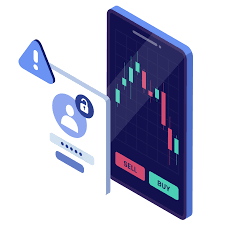Forex Fraude O Realidad, The foreign exchange market, commonly known as Forex, is the world’s largest financial market, with a daily trading volume exceeding $6 trillion. The allure of high profits and 24-hour trading attracts millions of traders, both seasoned and novice. However, for many, the question remains: Is Forex fraud or reality?
Understanding the Forex Market
Forex is a decentralized global marketplace where currencies are traded. Unlike stock exchanges, there is no central exchange. Instead, it operates over-the-counter (OTC) through a network of banks, brokers, and financial institutions. The core idea is to profit from the fluctuations in currency values, driven by global economic, political, and market factors.
Legitimate Forex trading requires a sound understanding of the market, strategies, and significant risk management. For professional traders and investors, Forex is indeed a reality—a powerful tool for diversifying portfolios, hedging against risks, and capitalizing on global market movements.
Where the Problem Lies: Scams and Fraud
Despite Forex being a legitimate financial market, it is also plagued by scams. The question, “Forex: Fraud or Reality?” often arises from the prevalence of fraudulent activities surrounding it.
Here are some common types of Forex scams:
- Unregulated Brokers: Some brokers operate without the necessary licenses and regulation, often promising unrealistic returns. These brokers typically have poor customer service, unreasonably high fees, and may even manipulate prices to their advantage.
- Ponzi Schemes: Fraudsters often promote investment schemes, promising guaranteed high returns with minimal risk. These schemes rely on attracting new investors to pay returns to earlier ones, collapsing once the inflow of new money stops.
- Signal Selling: Some individuals or companies offer to sell trading signals or strategies, claiming to have inside knowledge or proprietary systems that guarantee profits. Many of these are fraudulent or simply ineffective.
- Fake Investment Platforms: Some platforms allow investors to put money into Forex trades but never actually execute the trades. Instead, they fabricate the results to show gains, enticing traders to invest more until they disappear with the funds.
The Reality: Trading Risks
Forex trading is not a scam by nature, but it is not a guaranteed path to wealth either. For many people who lose money, the line between fraud and reality may become blurred. The high risks involved often catch novice traders off guard. Unlike scams, legitimate losses are a result of poor strategy, lack of market understanding, or excessive risk-taking.
How to Avoid Forex Scams
To distinguish fraud from reality, traders must take precautions:
- Choose Regulated Brokers: Always trade with brokers regulated by recognized financial authorities, such as the U.S. Commodity Futures Trading Commission (CFTC), the U.K.’s Financial Conduct Authority (FCA), or Australia’s Securities and Investments Commission (ASIC). Regulated brokers must adhere to strict rules that protect traders.
- Educate Yourself: Understanding the market, risk management, and trading strategies is crucial. Forex is not a “get-rich-quick” scheme; it’s a serious financial endeavor that requires knowledge and discipline.
- Be Skeptical of Promises: Avoid anyone promising guaranteed returns. Legitimate Forex trading involves risk, and no one can predict market movements with absolute certainty.
- Verify Track Records: If you are considering purchasing trading signals or subscribing to investment services, verify the provider’s track record through independent sources.
Conclusion: Fraud or Reality?
The answer to the question, “Forex: Fraud or Reality?” depends on perspective. Forex is a legitimate market with real opportunities for those who understand the risks and approach it with caution. However, the industry is also rife with scams, particularly preying on inexperienced traders looking for easy profits.
In conclusion, Forex is both a reality for legitimate traders and a potential fraud for those who fall victim to scams. By staying informed, using regulated brokers, and practicing sound risk management, traders can navigate this complex market safely.
You Might Also Like These:
Digimon Story: Cyber Sleuth Bug Recovery
Mimecast: 365 Days of Data Recovery and Cyber Resilience
Multi Recovery DX in Cyber Sleuth: Reviving Your Digital Experience
Cyber-State Recovery: Navigating the Path to Digital Resilience
Sample Cyber Security Disaster Recovery Plan: A Blueprint for Resilience

